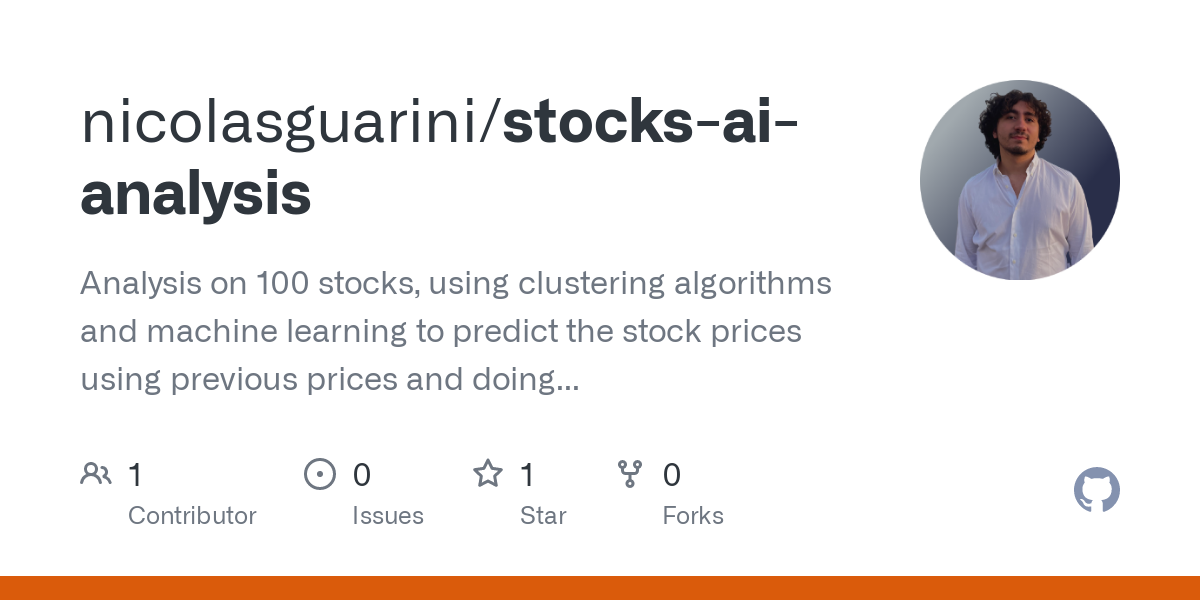Top 10 Tips To Stay Up-To-Date On Ai Stock Regulations Trading, From Penny To copyright
Keep abreast of the most recent regulatory changes, especially when you trade AI stocks on volatile markets like penny stock and copyright. Regulations can impact trading strategies and asset prices. Here are ten top strategies to keep you up-to-date on regulations for both traditional stock and copyright markets:
1. Be sure to follow the the Regulatory Authorities and Agencies
Keep up to date with the most recent information from the regulatory authorities:
The U.S. Securities and Exchange Commission and FINRA in the UK are the regulatory bodies for penny stocks.
copyright: U.S. Commodity Futures Trading Commission. SEC for copyright classification. Global regulators like European Securities and Markets Authority.
Why: These agencies provide updates, news and other enforcement actions that impact the regulation of markets.
2. Join Financial News Outlets
Tip: Join reputable financial news sources and services which focus on changes in the regulatory system.
Examples: Bloomberg, Reuters, The Wall Street Journal, CoinDesk, and The Block for copyright news.
The reason: Financial news media frequently break regulatory news before the deadline and help you stay on top of changes in the law.
3. Join Industry Associations and Forums
Participate in forums or industry groups that offer regular updates on regulatory issues.
CFA Institute and SIFMA are the two main associations for stocks.
copyright: Blockchain Association CryptoCouncil & other trade associations that focus on blockchain technology
Why: These organizations provide information, hold webinars and information on the upcoming regulations.
4. Track Legislative Developments
Tips: Keep current with the most recent legislation and regulatory developments regarding financial markets and copyright in your country.
If you are looking for penny stocks, be aware of any changes to market manipulation laws and practices in trading.
Be vigilant about copyright taxation and stablecoins.
Why: Legislative and regulatory modifications can have a significant impact on your strategy.
5. Use of Legal and Regulatory Platforms
Tip: Use platforms that monitor legal and regulatory changes in the copyright and financial sector.
For Stocks: Law360, LexisNexis.
copyright Regulatory News from CoinTelegraph.
These platforms can give you timely alerts detailed analyses, as well as information from regulatory agencies that can affect your trading.
6. Follow market analysts, legal experts and many other experts
Follow analysts and experts who specialize in copyright or financial regulation law via social media as well as professional platforms.
Follow SEC experts and financial analysts on Twitter to keep up with penny stocks, traditional markets and other market trends.
For copyright You should look for influencers as well as lawyers and analysts focusing on the copyright regulatory environment.
What they do: They offer rapid insight and provide a detailed explanation of complicated regulatory changes.
7. Monitor Exchange and Broker updates
TIP: Be sure to check your broker or trading platforms frequently to determine if they have any updates regarding compliance with the regulations.
copyright Exchanges: Exchanges, such as copyright copyright copyright copyright copyright frequently release updates for compliance.
Brokers offer legal information to penny stock traders. These include E*TRADE Charles Schwab TD Ameritrade.
The reason is that exchanges are able to be more responsive to changes in regulations than the general market. They are able to give valuable information on changes in standards of law.
8. Make use of AI to Analyze Risk in the Regulatory Analysis
Tip: Use AI tools to study and analyze regulatory risks across markets. AI can analyze documents from the government or news sources as well as legal databases.
Why is that? AI can detect any regulatory changes or risk in advance, so you can adjust your trading plan proactively.
9. Be aware of taxation laws
Keep up with the latest taxes and laws affecting the stock market and copyright.
For stocks Be on the lookout for the latest developments regarding capital gains tax, tax loss harvesting rules and the reporting rules.
For copyright: Be familiar with taxation regulations pertaining to copyright transactions.
What is the reason? Tax regulations play a significant element in determining net returns.
10. Participate in Webinars, Conferences, and Webinars
Participate in online and webinar conferences on financial regulation and copyright.
Examples include webinars hosted by the SEC, CFTC or conferences like Consensus in copyright Regulation.
What’s the reason: Industry events are a great way to directly hear from regulators as well as gain insight from experts on future regulatory changes.
Bonus: Automated Compliance Monitor
Make use of AI-based monitoring tools that automate the process of checking for changes to laws and their effects on your business.
The reason is that automating the compliance process enables you to stay up-to-date with legal developments without tracking the changes manually. This ensures your trading system is automatically adapted.
You can make sure that your AI strategies for investing in stocks are compliant with current laws by following these guidelines. This is true whether you’re dealing in the penny stock market or copyright currency. You can minimize legal risk by staying proactive and up-to-date. Read the top rated ai trading for website info including ai stock price prediction, ai financial advisor, ai for stock trading, ai in stock market, ai stock price prediction, copyright predictions, trading chart ai, ai for trading stocks, smart stocks ai, ai sports betting and more.

Top 10 Tips For Regularly Updating And Optimizing Models For Ai Prediction Of Stocks, Stock Pickers And Investment
To ensure accuracy, adjust to market changes, improve performance, and ensure accuracy, it is essential to constantly improve and upgrade your AI models. Your AI models should evolve with the market. These 10 top tips can help you keep up-to-date and optimize your AI model effectively.
1. Continuously incorporate new market data
Tips: Make sure you incorporate the most current market information regularly including earnings, stock prices macroeconomic indicators, as well as social sentiment. This will ensure that your AI models are relevant and reflect the current market conditions.
AI models that do not have updated information can be outdated. Regular updates increase the precision, predictability, and responsiveness by keeping it up to date with current trends.
2. Watch model performance in real Time
Tip: Set-up real-time monitoring so that you can monitor how your AI model is performing under live market conditions, looking for indicators of underperformance or drift.
The reason is that monitoring the performance of your model will allow you to spot issues, such as drift (when accuracy declines over the course of time). This allows you to have the an opportunity to intervene or adjust before any major loss.
3. Regularly Retrain models with new data
Tip: Use updated historical data (e.g. quarterly or monthly) to improve your AI models and adapt them to market dynamics that change.
Why? Market conditions change constantly, and models based on old information may be less reliable. Retraining helps the model learn from recent market behaviors and trends, which ensures that it is always efficient.
4. Adjust Hyperparameters to Increase Accuracy
You can improve your AI models through grid search, random search, or other optimization techniques. You can optimize AI models using grid searches, random searching, or other techniques.
Why: Proper tuning of hyperparameters ensures that your AI model will perform optimally which helps to increase prediction accuracy and prevent overfitting or underfitting of historical data.
5. Try out new Features and Variables
TIP: Continue to play with new features, data sources, and other data sources (e.g. posts on social media or sentiment analysis) to enhance model prediction and discover potential correlations or insight.
What’s the reason? Adding more relevant elements to the model increases its accuracy, allowing it to access to nuanced data and information.
6. Make use of ensemble methods to make better predictions
Tips: Use ensemble learning techniques such as bagging stacking, or boosting to combine multiple AI models and improve overall accuracy in prediction.
Why Ensemble Methods improve the accuracy and reliability of AI models. They do this by drawing strengths from several models.
7. Implement Continuous Feedback Loops
Tip: Establish an feedback system in which the model’s predictions are compared to the actual market results and employed as a tool to continually improve the model.
The reason is that the model’s performance is analyzed in real-time. This allows the model to rectify any errors or biases.
8. Incorporate Regular Stress Testing and Scenario Analysis
Tip: Periodically stress-test your AI models with hypothetical economic conditions, including crashes, extreme volatility or unpredictable economic events to assess their robustness and their ability to deal with unexpected scenarios.
Stress testing ensures that the AI model is prepared for any unusual market conditions. Stress testing can be a way to find out whether the AI model has any weaknesses that could cause it not to perform well in volatile or extreme market conditions.
9. AI and Machine Learning – Keep up on the latest advancements
Tip: Keep up to date with the most recent AI techniques, tools and algorithms. Experiment by incorporating newer techniques into your models (e.g. the use of transformers or reinforcement learning).
What’s the reason? AI is constantly evolving and the most recent advancements can improve performance of models, efficiency and precision when it comes to forecasting and stock selection.
10. Risk Management: Continuously evaluate and adjust for risk management
TIP: Review and improve your AI model’s risk management components (e.g. stop-loss strategies, position sizing or risk-adjusted return).
The importance of risk management in stock trade. It is essential to make sure that your AI system does not just maximize profits, but also effectively manages risk in a variety of market conditions.
Monitor market sentiment to update Models.
Tips: Incorporate sentiment analysis (from social media, news, etc.) Modify your model to be able to respond to changes in investor psychology or sentiment in the market.
What is the reason? Market sentiment has an impact on stock prices. The incorporation of sentiment analysis in your model lets you capture broader emotional and market mood shifts which might not have been able to be analyzed by conventional data.
Also, you can read our conclusion.
By regularly updating and optimising your AI stock-picker, investment strategies and forecasts, you can ensure that the model’s performance is always relevant, accurate and flexible in a constantly changing market. AI models that are constantly refined and retrained with the latest information and also incorporate real-world feedback, as well as the latest AI advances, will give you an edge in stock predictions and investment decision making. View the best weblink for best ai trading app for site examples including ai day trading, artificial intelligence stocks, ai trade, best ai stock trading bot free, best ai for stock trading, ai stock prediction, ai stock trading app, best ai stocks, ai stock price prediction, ai stock analysis and more.

